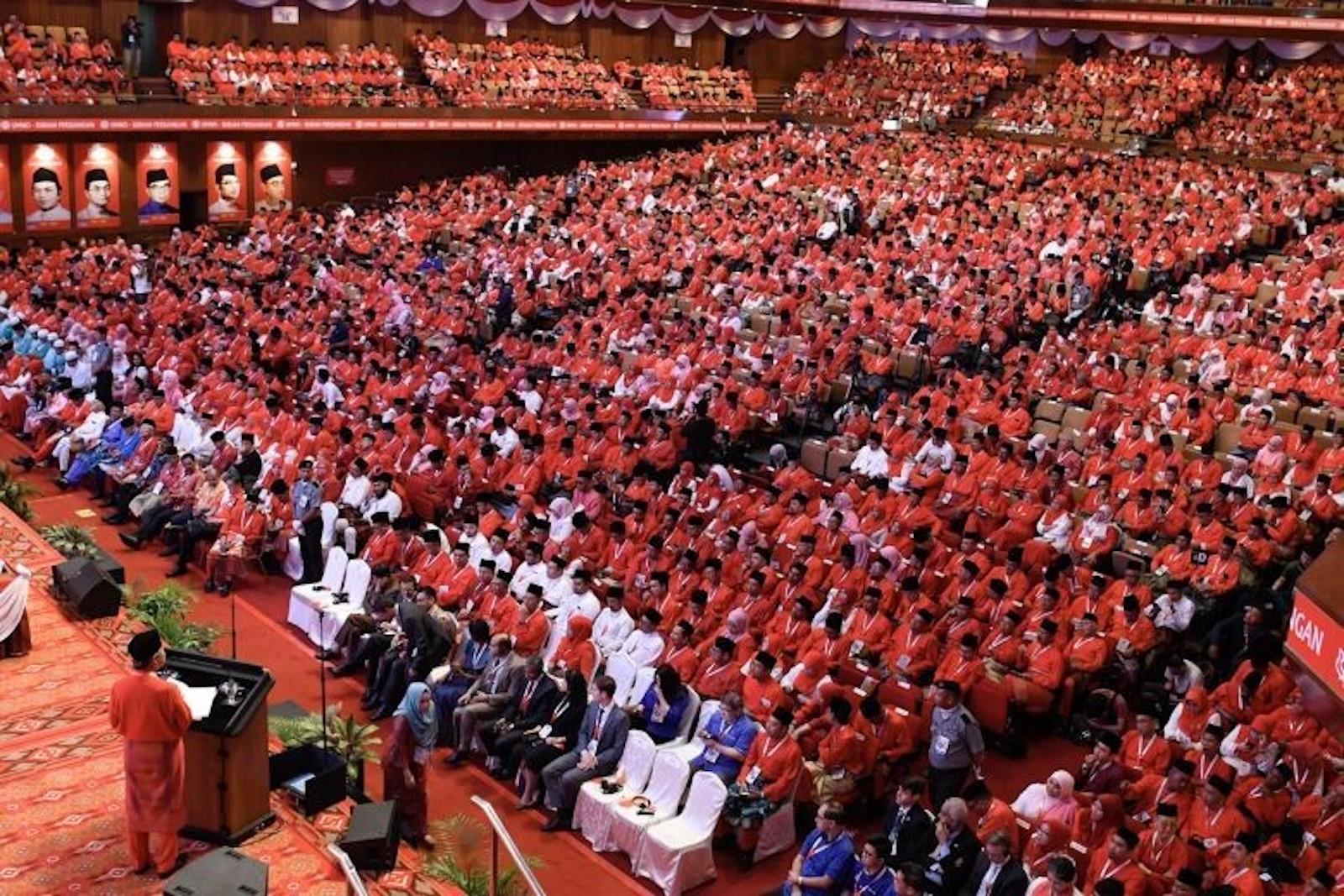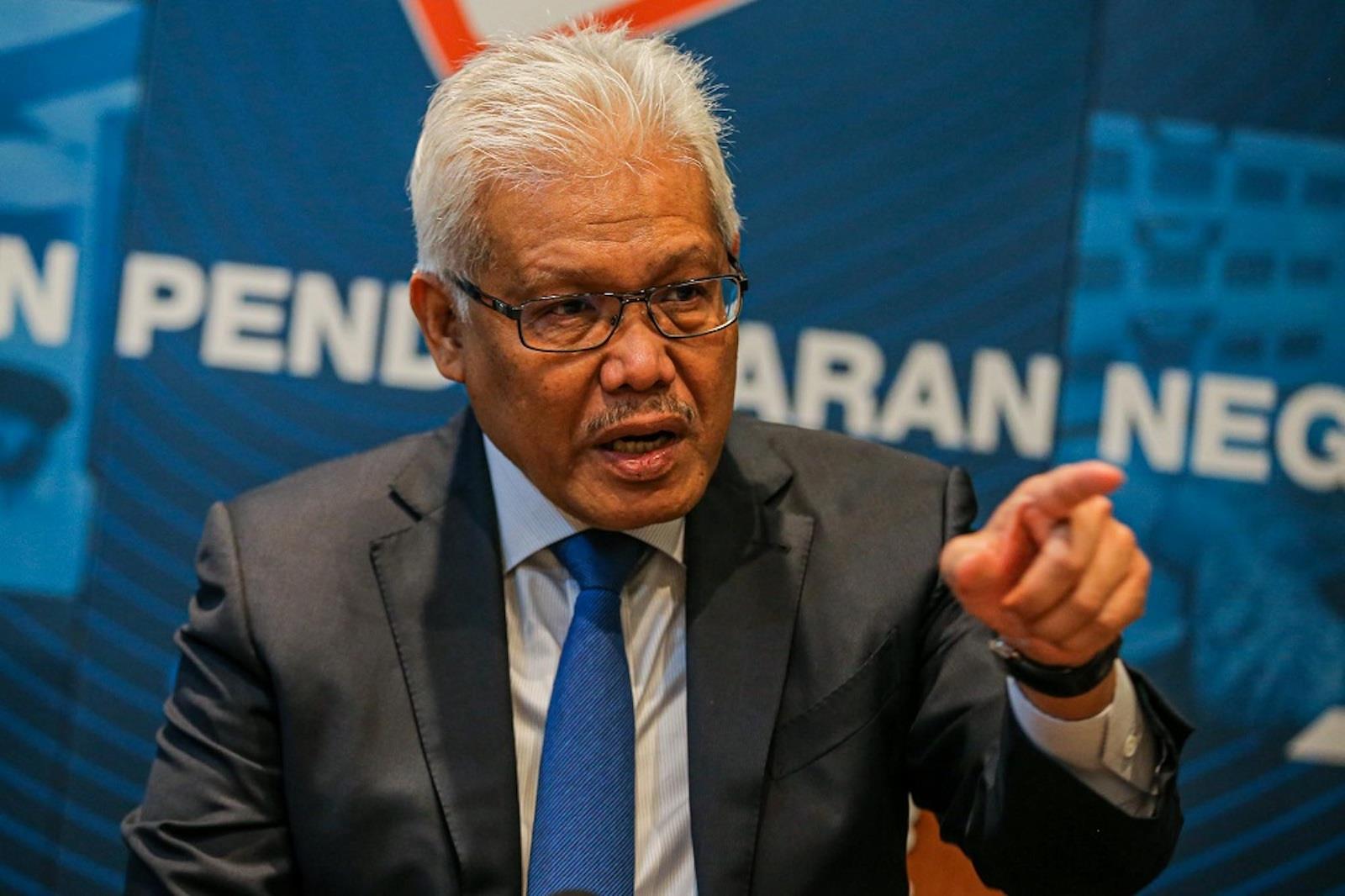(MENAFN- Asia Times) SINGAPORE – Malaysia Prime Minister Anwar Ibrahim won crucial backing for his premiership on Monday (December 19) when parliament passed a motion of confidence, helping consolidate his position as head of a royally-brokered“unity” government formed after last month's election delivered a hung parliament.
The confidence motion was not a formal requirement but was held at the discretion of the 75-year-old premier in a bid to cement his legitimacy after rival and former premier Muhyiddin Yassin cast doubt on his support, accusing his Pakatan Harapan (PH) bloc of committing the“biggest electoral fraud ever” in cahoots with the former ruling Barisan Nasional (BN) coalition.
Neither the government nor the opposition pushed for lawmakers to vote individually; the confidence motion instead passed by a simple voice vote. But the government's command of 148 out of 222 parliamentary seats, enough for a two-thirds majority to table and pass constitutional amendments, was ostensibly demonstrated through votes for the new house speaker and two deputies.
Hafidzi Razali, a senior analyst at the BowerGroupAsia consultancy, said the move“allowed Anwar to officially record his coalition's numbers in the parliament, and not through untransparent political maneuvering,” a reference to the use of signed statutory declarations (SDs) from individual lawmakers that the two most recent administrations have relied on to shore up support.
Failure to prove a governing majority would have brought Anwar's premiership to a premature end, but the vote was relatively risk-free. The disparate political coalitions that form the unity government signed a memorandum of agreement (MOA) ahead of the parliamentary sitting, leaving the outcome of the confidence vote a veritable foregone conclusion.
However, the MOA's terms have stirred unease among Anwar's progressive support base and stoked a legal debate, namely the provision that government lawmakers who fail to vote or support the prime minister in motions relating to confidence votes, supply bills or procedural matters will be deemed to have resigned, thus forcing a by-election for their seat under Malaysian law.

Anwar in a celebratory mood. Image: Facebook
Critics of the agreement have portrayed it as undemocratic for purportedly violating the rights of legislators to disagree with their parties on matters of principle, while legal experts have argued that automatic resignations may only be subject to the provisions of individual party constitutions, most of which do not treat defiance of party instruction as an act compelling resignation.
Bersih, an electoral reform advocacy group, in a statement said it was“deeply alarmed” that parties to the agreement are expected to compel their lawmakers to vote on“all motions” rather than just confidence and supply matters where legitimacy is at stake.“With a two-thirds majority government, that would be a blank cheque to constitutional amendments,” said the group's steering committee.
The watchdog organization added that while it welcomed the negotiated formation of a government based around parties rather than individual lawmakers, it expressed concern that the memorandum“curtails the free will of parliamentarians in voting and holds that any compromise made must be limited to what is necessary to not result in dangerous executive dominance.”
Anwar, who is Malaysia's fourth premier in two years, described the MOA's signing as a historic moment in the country's politics and said his coalition partners had agreed“on broad parameters and broad policies” to ensure political stability amid a hung parliament, which would allow his administration to focus on good governance and developing the economy.
“We concede that no party managed to have a clear majority, therefore... it makes a lot of sense that we have to achieve this sort of understanding based on shared principles,” he told a December 16 press conference, adding that the MOA commits the government to uphold the rights of the country's majority Malay community and Islam as its official religion.
Wong Chin-Huat, a political science professor at the Jeffrey Sachs Center on Sustainable Development in Malaysia, concedes that while the MOA has its flaws,“the Anwar-led coalition government had done the right thing” by forming itself on party-to-party negotiation, publishing the full text of the recent agreement, then voluntarily opting to prove its majority in parliament.
“If such practices continue in future hung parliaments, the politics of SD auction will be eliminated,” he wrote in a recent commentary , referring to rampant past practices where individual lawmakers are approached to sign SDs in support of a prime ministerial candidate“facilitated by undisclosed and shifting personal deals between the PM and the MPs.”

An UMNO Party Congress in 2019. Anwar's relies on the erstwhile rival party for his parliamentary majority. Image: Facebook
In a separate measure to deter alliance shifting of the sort that brought down the previous PH government, which governed from 2018-20, new legislation triggering a by-election when a lawmaker quits or switches political parties was passed in July. Political coalitions can, however, still choose to switch allegiances as a bloc, a key point of vulnerability for Anwar's administration.
The anti-climactic passage of this week's confidence motion followed a nearly four-hour debate that saw leaders from the opposition Perikatan Nasional (PN) bloc, which insists it presented the first proof of a mandate to govern to Malaysia's king following the November 19 election, admonish the vote as unnecessary given the monarch's appointment of Anwar as premier.
That didn't stop opposition leader Hamzah Zainuddin from taking pot-shots at Anwar, challenging the premier to sue an obscure Italian online news site that published an editorial claiming he was Malaysia's first“full-blown homosexual” prime minister, in reference to the near-decade Anwar spent in jail on sodomy and corruption charges he says were politically motivated.
Hamzah, PN's secretary-general, was then warned from across the aisle“not [to] abuse the space given to the opposition leader.” The opposition bloc has continued to question the true extent of lawmaker support for Anwar, with Hamzah saying PN is ready to take over as the ruling government“when the time comes. It can be any time: tomorrow, next week or next election.”
PN's decision to appoint 65-year-old Hamzah as opposition leader, rather than its chairman Muhyiddin, the coalition's most recognizable figure, marks an effort to front a new batch of leaders after refusing to be part of Anwar's unity government. Muhyiddin, a pancreatic cancer survivor who was premier for 17 months from 2020-21, had previously spoken of retiring from politics.
“PN partly rode on Muhyiddin's popularity and track record to win the rural/semi-rural Malay votes,” said BowerGroupAsia's Hafidzi.“PN will now have to ensure the momentum can last and will need a similarly popular figure for the next general election. Hamzah, while a mainstay in Malaysian politics, is not as recognizable and hence will need the next few years to be the face of PN.”

Opposition leader Hamzah Zainuddin is already firing politicized broadsides at Anwar. Image: Facebook
Hamzah, a four-term lawmaker, previously helmed the powerful home ministry under both the Muhyiddin and Ismail Sabri Yaakob administrations, and his appointment as opposition leader positions him as a prime ministerial contender if PN returns to power. He previously sued Anwar over claims the latter had harassed his wife, though the two politicians reached a settlement in 2013.
The two-day parliamentary sitting concluded with the passage of a 163.7 billion ringgit (US$36.8 billion) mini-budget as a stopgap to pay civil servant salaries and keep the government running. The 372.3 billion ringgit ($80 billion) national budget for 2023 was tabled by Ismail's administration in October but was not passed before the dissolution of parliament.
Anwar, who is concurrently serving as finance minister, said his government would continue with a direct cash aid program for low-income earners implemented by the previous administration as part of the approved mini-budget. The premier told parliament that further revisions to the 2023 budget were required and that a new supply bill would be tabled in February next year.
Follow Nile Bowie on Twitter at @NileBowie























Comments
No comment